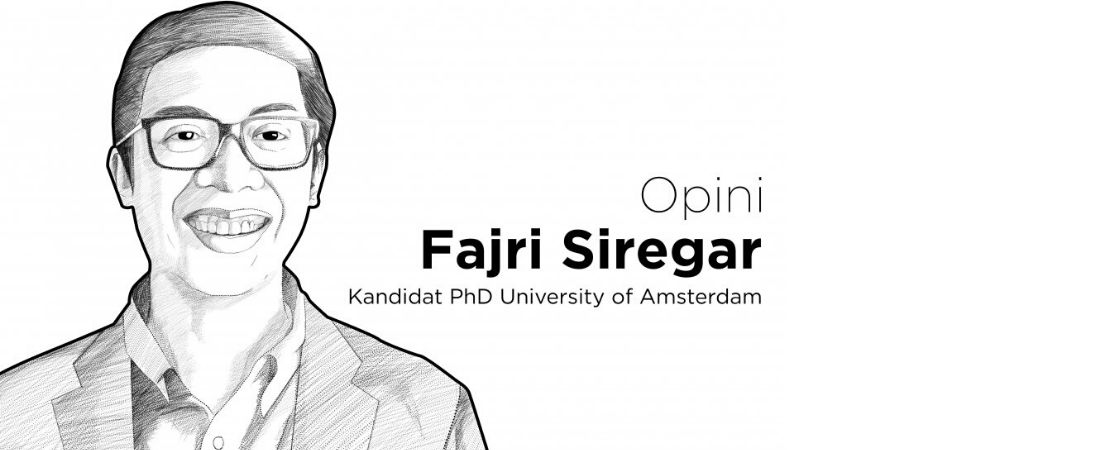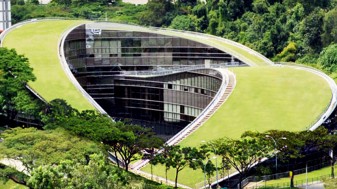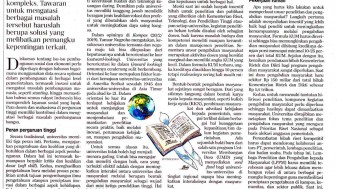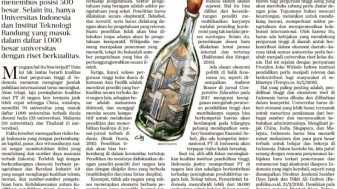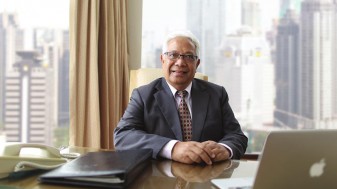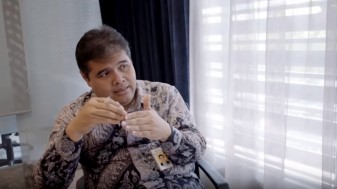The article was published in Bahasa Indonesia at Katadata.co.id, 16 April 2020
These days, almost all public discussions place Covid-19 as the main object, forcing people to think about their safety and health. And there is no shortage of opinions that highlight the faults of the development system and globalization as yet another trigger for this pandemic.
The many considerations of economic growth over public welfare is the most common criticism we hear. Thus, after all this is over, we need to think about how to lead our lives in a more organized manner, and more wisely so, in harmony with the environment and nature. More organized. The two keywords that Indonesian policymakers must take into account.
Improving crisis management can be used as a momentum to correct development practices that have focused too much on economic development. Similarly, discussions about innovation that have been linked too much with economic growth. There needs to be a shift toward a more inclusive innovation that puts emphasis on interdisciplinary approach to address actual challenges faced by society. I will try to elaborate this inclusive innovation approach into three temporal dimensions to illustrate the urgency.
In the short term, or the most urgent dimension, the interdisciplinary approach must be integrated into the handling of Covid-19 pandemic. Some of the ways this can be achieved is to apply the sociological perspective into technical questions in handling this pandemic.
A few weeks ago, a Social Panel for Disaster Mitigation comprising researchers from Social and Humanities of the Indonesian Institute of Sciences (IPSK-LIPI), University of Indonesia (UI), Gadjah Mada University (UGM), and Disaster and Crisis Journalists of Indonesia (JBK), prepared a quick study about the privacy and data protection aspects of Covid-19 patients. The study was used as the basis for government decision in handling and publishing data of patients and victims of the pandemic.
This is a small example of the importance having a basis for decision making in emergency situations and social research-based data on people’s behavior and perceptions. At the global level, scientists have conducted an international survey of perceptions of the coronavirus.
When speaking of data, Covid-19 victims in Indonesia should also be studied based on how they were infected, not only ‘where’ they were infected. As is known, there are patients who were infected because they failed to avoid mass gatherings. The lessons about the patterns of spreading of this virus is not only important for health experts, but also for social scientists. Similarly, documenting such events is also important for historians.
In the medium-term, we can discuss about the importance of social and humanities research in the context of moving the state capital. So far, most of the discussions about moving the capital center around the technical aspect. For example, the issue of land clearance and ownership, cost and time of development, to naming the new capital.
Whereas the most important aspect to be considered is the changes that will be faced by local communities and indigenous peoples. There will be a migration of hundreds of thousands (even millions) of people into their area. Again, an interdisciplinary research with a social and humanities perspective is key here.
To be more precise, before we set off the idea of moving the capital, we should delve into historical, geographical, demographic, and sociological studies about transmigration policy during the New Order era. Learning from existing experience should be inherent to doing inclusive innovation.
In the longer-term dimension, the challenge is to integrate the social and humanities aspect into the entirety of research and development. This needs to be supported in the institutional framework of the National Research and Innovation Agency (BRIN), because social sciences and humanities are not merely complementary to scientific research.
If the government’s commitment is total, the integration of this perspective would manifest with the presence of a special deputyship to accommodate social and humanities research. If it comes into being, its task would be to ensure that social research is not merely a budget item, but to ensure that the voice of social and humanities researchers enrich the process as well as the outcomes of research and policy.
Insofar as social research is associated with ‘fire extinguisher’ research to mitigate social disasters or problems. Social research has been identical with handling terrorism, violent conflicts, or even just to understand why students in urban areas are involved in mass brawls. Whereas, development of smart city is considered to be the domain of information technology scientists alone. Such dichotomized thinking must be deconstructed. With institutional support, national research agenda can be ensured to accommodate social and humanities research, not just to complement, but also as a perspective.
Thus, it will be inherent to various national strategic issue—from food security, smart city development, national diversity, to other strategic issues, such as development of industry 4.0.
Again, the situation today reminds us of the importance of interdisciplinary approach and social and humanities research to be integrated into state governance and policymaking. The term ‘innovation’ that we often hear of shall not only pertain to downstreaming and commercialization, but also inclusion. Thus, inclusive innovation and interdisciplinary approach based on social and humanities aspect is very important. Pandemic notwithstanding.

